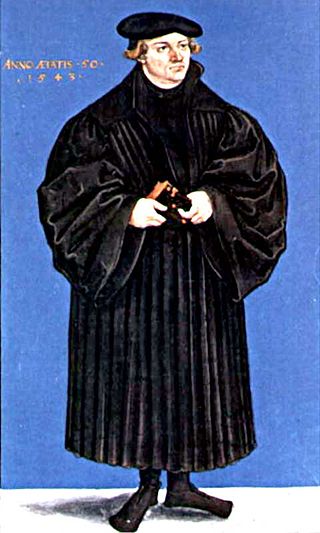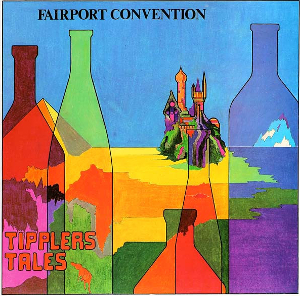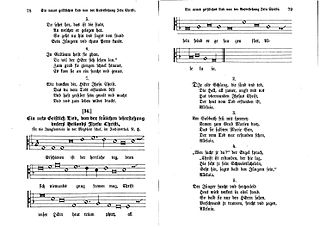Related Research Articles

In ancient Greek religion and mythology, Demeter is the Olympian goddess of the harvest and agriculture, presiding over crops, grains, food, and the fertility of the earth. Although Demeter is mostly known as a grain goddess, she also appeared as a goddess of health, birth, and marriage, and had connections to the Underworld. She is also called Deo. In Greek tradition, Demeter is the second child of the Titans Rhea and Cronus, and sister to Hestia, Hera, Hades, Poseidon, and Zeus. Like her other siblings except Zeus, she was swallowed by her father as an infant and rescued by Zeus.

Matthias Claudius was a German poet and journalist, otherwise known by the pen name of “Asmus”.

"A Mighty Fortress Is Our God" is one of the best known hymns by the Protestant Reformer Martin Luther, a prolific hymnwriter. Luther wrote the words and composed the hymn tune between 1527 and 1529. It has been translated into English at least seventy times and also into many other languages. The words are mostly original, although the first line paraphrases that of Psalm 46.

Justus Jonas, the Elder, or simply Justus Jonas, was a German Lutheran theologian and reformer. He was a Jurist, Professor and Hymn writer. He is best known for his translations of the writings of Martin Luther and Philipp Melanchthon. He accompanied Martin Luther in his final moments.

Hans Adolph Brorson was a Danish pietist clergyman, hymn write and translator of German language hymns. He served as Bishop of the Diocese of Ribe.

A harvest festival is an annual celebration that occurs around the time of the main harvest of a given region. Given the differences in climate and crops around the world, harvest festivals can be found at various times at different places. Harvest festivals typically feature feasting, both family and public, with foods that are drawn from crops.

Tipplers Tales is a 1978 album by Fairport Convention, the band's thirteenth studio album since their debut in 1968. Recorded in only ten days, it was the last album the band recorded for Vertigo. Simon Nicol later wrote
"We secured a deal with Vertigo, the one that ended up with them paying us not to make records. It seemed a novelty, like that Marx Brothers line: "How much for you NOT to rehearse?" "Oh, you can't afford it." We did Bonny Bunch and Tipplers Tales then didn't make the other four contracted albums"

"Herr Gott, dich loben wir" is a Lutheran hymn, which Martin Luther wrote in 1529 as a translation and partial paraphrase of the Latin Te Deum. It is sometimes called the German Te Deum. The hymn was first published in 1529. Its hymn tune, Zahn No. 8652, is a simplification of the melody of the traditional Te Deum. It has appeared in 24 hymnals.

Psalm 144 is the 144th psalm of the Book of Psalms, part of the final Davidic collection of psalms, comprising Psalms 138 to 145, which are specifically attributed to David in their opening verses. In the King James Version its opening words are "Blessed be the LORD my strength which teacheth my hands to war, and my fingers to fight". In Latin, it is known as "Benedictus Dominus".

Psalm 75 is the 75th psalm of the Book of Psalms, beginning in English in the King James Version: "Unto thee, O God, do we give thanks". The Book of Psalms forms part of the Ketuvim section of the Hebrew Bible and part of the Christian Old Testament. In the slightly different numbering system of the Greek Septuagint version of the bible, and in its Latin translation, the Vulgate, this psalm is Psalm 74. In Latin, it is known as "Confitebimur tibi Deus". It is one of the psalms of Asaph.

"We Plough the Fields and Scatter" is a hymn of German origin commonly associated with harvest festival. Written by poet Matthias Claudius, "Wir pflügen und wir streuen" was published in 1782 and set to music in 1800 attributed to Johann A. P. Schulz. It was translated into English by Jane Montgomery Campbell in 1861. It appears in a shortened form in the musical Godspell, as the song, "All Good Gifts". It is among the most performed of hymns in the United Kingdom.
Media vita in morte sumus is a Gregorian chant, known by its incipit, written in the form of a response, and known as "Antiphona pro Peccatis" or "de Morte". The most accepted source is a New Year's Eve religious service in the 1300s. Reference has been made to a source originating in a battle song of the year 912 by Notker the Stammerer, a monk of the Abbey of Saint Gall: however, the Synod of Cologne declared in 1316 no one should sing this without prior permission of the residing bishop.

"Nun bitten wir den Heiligen Geist" is the title of several hymns in German. The first is one of the oldest hymns in the German language: a 13th-century leise. Subsequent versions expanded upon the leise; the original hymn became the new version's first stanza, and it now used melodies derived from its medieval tune. The Protestant reformer Martin Luther expanded the leise in 1524, and different Catholic versions were published between 1537 and 1975.

"Herr Christ, der einig Gotts Sohn" is a Lutheran hymn by Elisabeth Cruciger. Printed in 1524 in the Erfurt Enchiridion, together with 18 hymns by Martin Luther, it is one of the oldest Lutheran hymns. The text combines Lutheran teaching with medieval mysticism. It has been the basis of musical settings such as Bach's chorale cantata Herr Christ, der einge Gottessohn, BWV 96.

Paddington is a 2014 live-action animated comedy film written and directed by Paul King. It was developed from a story by King and Hamish McColl, which was based on the stories of the character Paddington Bear created by Michael Bond. Produced by David Heyman, Paddington stars Ben Whishaw as the voice of the title character, with Hugh Bonneville, Sally Hawkins, Julie Walters, Jim Broadbent, Peter Capaldi, and Nicole Kidman in live-action roles. The film tells the story of Paddington, an anthropomorphic bear who migrates from the jungles of "Darkest Peru" to the streets of London, where he is adopted by the Brown family. Kidman plays a taxidermist who attempts to add him to her collection.

"Wir glauben all an einen Gott" is a Lutheran hymn, a paraphrase of the creed, by Martin Luther and first published in Johann Walter's chorale hymnal Eyn geystlich Gesangk Buchleyn. The hymn was used in several musical settings, including Kleine Geistliche Konzerte I, SWV 303, by Heinrich Schütz, and Johann Sebastian Bach's Clavier-Übung III, BWV 680 and BWV 681. The Zahn number of its hymn tune is 7971.

"Erschienen ist der herrlich Tag" is a German Easter hymn, with text and tune written by Nikolaus Herman and published in 1561. It has inspired musical settings by composers from the 17th to the 20th century. It appears in several hymnals, including the German Protestant hymnal Evangelisches Gesangbuch. Other hymns, especially Easter hymns, in both German and English, are sung to the same melody.
Hymnody in continental Europe developed from early liturgical music, especially Gregorian chant. Music became more complicated as embellishments and variations were added, along with influences from secular music. Although vernacular leisen and vernacular or mixed-language carols were sung in the Middle Ages, more vernacular hymnody emerged during the Protestant Reformation, although ecclesiastical Latin continued to be used after the Reformation. Since then, developments have shifted between isorhythmic, homorhythmic, and more rounded musical forms with some lilting. Theological underpinnings influenced the narrative point of view used, with Pietism especially encouraging the use of the first person singular. In the last several centuries, many songs from Evangelicalism have been translated from English into German.

"Wir pflügen und wir streuen" is a sacred song about thanksgiving for harvest, with text by Matthias Claudius. It was first published in 1783 as Das Bauernlied. It became a hymn, with melodies by Johann André and Johann Abraham Peter Schulz. It appears in the current German Protestant hymnal Evangelisches Gesangbuch as EG 508 with the latter melody, and is used mostly for the German Erntedankfest. The song is also known by its refrain, "Alle gute Gabe". Jane Montgomery Campbell translated it to English in 1861 as "We plough the fields and scatter".
Charles Sandford Bere was an English first-class cricketer and clergyman.
References
- 1 2 "Hymnology" . Retrieved 18 October 2020.
- 1 2 "Praise" . Retrieved 18 October 2020.
- 1 2 "Blue Letter Bible" . Retrieved 18 October 2020.
- ↑ "We plough the fields, and scatter". Hymnary.org. Retrieved 18 October 2020.